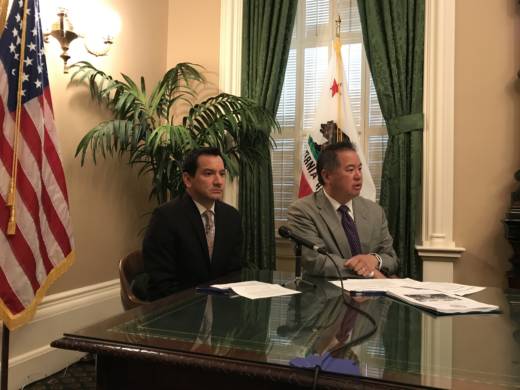The Brown administration wanted the Proposition 56 tobacco tax dollars to be folded into the state's existing Medi-Cal program for low-income residents.
Democrats and Republicans in the state Legislature pushed back, arguing that the intent of the measure passed by voters in November was to specifically address low reimbursement rates for Medi-Cal providers. Both houses of the Legislature wanted nearly a billion dollars of the new revenue to be directed toward reimbursement boosts.
"When we impose taxes on the populace of California, I think we’re obligated to spend those taxes for the purposes that we represent to the public," said Assembly Budget Vice Chair Jay Obernolte (R-Hesperia). "It was very much the legislature versus the administration on this."
The final deal will provide $546 million to reimbursements, with increases for doctors, dentists, family planning providers and providers serving the developmentally disabled.
One important caveat: The rate increases are contingent upon approval from the federal government. Republicans in Congress have been supportive of reimbursement rate increases for doctors, but may not be as likely to approve a waiver for a $50 million increase in rates for women's health service providers like Planned Parenthood.
"If I had a Magic 8 Ball to guess what the Trump administration would do, then we could plan our budget that way," said Assembly Budget chair Phil Ting (D-San Francisco). "But we can't live life that way."
Lawmakers were on a tight timeline to approve a final budget deal. Proposition 54, passed in November, requires legislation (including the budget) be in print for 72 hours before a final vote is taken.
Most of the language unveiled on Tuesday was agreed upon in conference committee last week, while later deals were worked out on issues that included tobacco tax spending.
Funding Increases for Child Care, Tax Credits
The Democratic gains in the budget agreement were paved by a compromise with Governor Jerry Brown on projected state revenues.
The budget for the upcoming fiscal year sticks to the Governor’s more conservative estimate of next year's revenues, but adopts the legislature’s projections of a larger property tax windfall. These dollars help cover a larger portion of required school funding, thereby freeing up other general fund money for new spending priorities.
The revenue projections opened the door for legislative Democrats to fund eligibility expansions for child care subsidies and the state's earned income tax credit.
The tax credit will now cover Californians living off of a minimum-wage, and those who are self-employed.
"By expanding the CalEITC, state policymakers will help more hard-working Californians to afford the basics and advance economically," said Chris Hoene, executive director of the nonpartisan California Budget & Policy Center.
Housing, Cap and Trade Left Unaddressed
The budget deal was silent on new revenues to address California's affordable housing crisis, as well as plans to extend the state's cap-and-trade program.
An Assembly proposal to spend $400 million on affordable housing, originally proposed by Brown, was killed in budget committee last week. Speaker Anthony Rendon called that sum "somewhat anemic" and said the Assembly would continue to address housing in policy bills.
"We do need a continuous source of funding," he added. "I think that’s a much better alternative than just having money come out of the budget anyway.”
Gov. Brown had hoped to extend the state's cap-and-trade program with a two-thirds vote this month, as it nears a 2020 expiration date. The marketplace system allows businesses to buy and sell credits to pollute.
"It doesn’t necessarily have to get done this year, but the conversations are occurring as we speak," said Rendon. "The conversations are still in the nascent stages.
In a statement praising the legislative unity around the budget deal, Brown said he is "confident that we can do the same to extend our critical cap-and-trade program."
But later on Tuesday, the Governor showed less faith that he could rely on getting nearly all Democrats to support a plan, which would be necessary for a supermajority approval.
Speaking about an extension at an international gathering focused on climate change policy, he said “I’m very confident that the key to that objective is Republicans."
